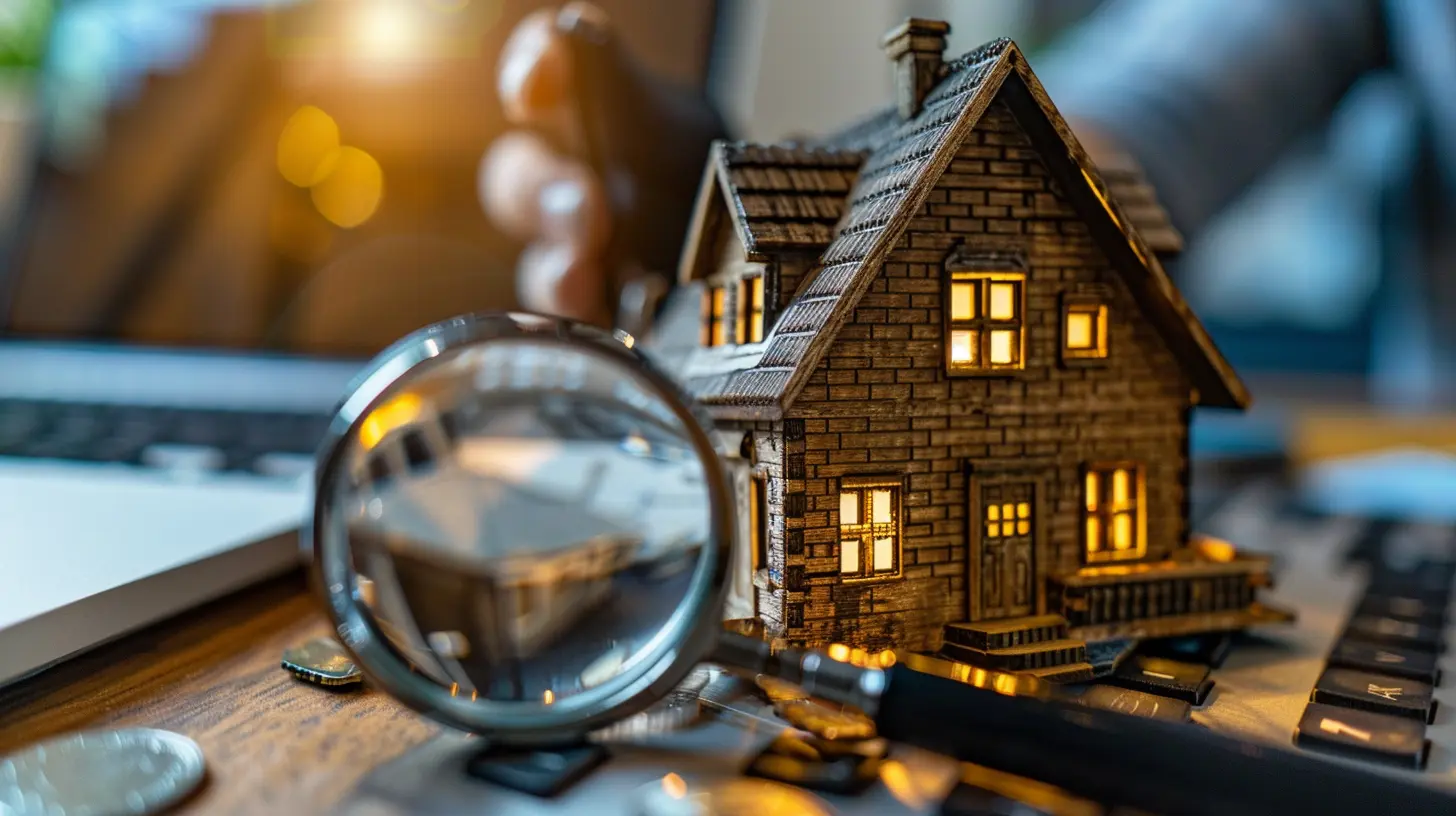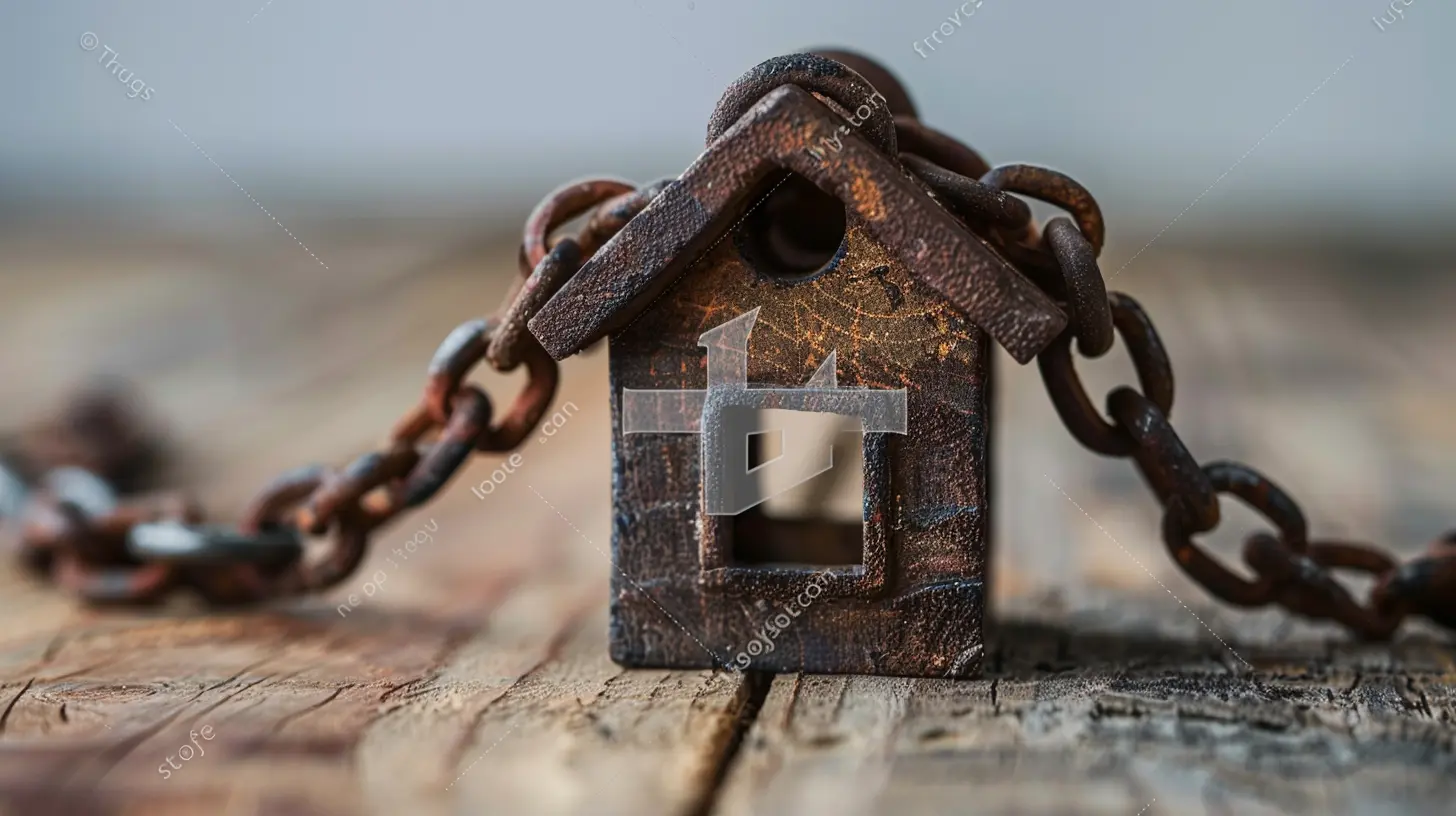Deed Scams: How People Can Steal Your Property
16 October 2025
Imagine waking up one day only to realize your property is no longer yours. Sounds like a plot twist from a bad thriller, right? Unfortunately, this nightmare is real—and it's happening more often than you'd expect. Property deed scams are sly, shocking, and sometimes downright sinister. If you own any real estate—or even just aspire to—you need to understand how these scams work, why they’re becoming more common, and what steps you can take to protect yourself and your future.
Let’s break down this dark corner of the real estate world and shine some light on how to guard your property like a pro.
What Is a Deed Scam?
In plain English, a deed scam happens when someone fraudulently transfers ownership of your property to themselves—or a third party—without your knowledge. That means they trick the system into thinking they legally own something that’s actually yours.Once the fraudulent deed is recorded, the scammer can:
- Sell the property to an unsuspecting buyer
- Take out loans against it
- Rent it out
- Use it as collateral
...all while the real owner (that's you) is completely in the dark.
It’s a modern-day heist, without ski masks and crowbars. Instead, all it takes is some forged paperwork, a little deceit, and unfortunately, a few gaps in the system.
How Is This Even Possible?
That’s the million-dollar question. How can someone just take your property?Well, here’s the deal: real estate transactions rely heavily on trust in documentation. The problem is, most county recorder offices don’t verify whether submitted documents are legit. Anyone can walk in with what looks like a real deed—signed and notarized—and get it recorded.
Yes, that’s right. There’s very little oversight during the recording process. It’s more of a filing system, not a fraud detection mechanism.
So, what do scammers do? They file a forged deed, make it look official, and boom—you’re no longer the legal owner of your property, according to public records.
Who’s Most at Risk?
You might be wondering, “Could this happen to me?” Well, here’s a short list of situations where deed fraud is more likely:1. Vacant Properties
Scammers love these. Nobody’s watching, no mail to intercept, no curious neighbors snooping around. These are low-hanging fruit for fraudsters.2. Elderly Homeowners
Older adults are often targeted because they might not monitor their property records closely—or at all.3. Out-of-State Owners
Do you own a rental property or vacation home in a different state? That puts you at higher risk.4. Homes in Probate
Properties going through inheritance or estates can also be easy targets. Scammers take advantage during the confusion and legal back-and-forth.
The Anatomy of a Deed Fraud
Let’s walk through how a scam like this might unfold:1. The Setup
A scammer identifies a target—usually a property with no mortgage or minimal oversight.
2. Forging the Papers
They create a fake deed saying they bought or inherited the property. It might include forged signatures, false notary seals, and made-up buyer/seller info.
3. Recording the Deed
They take this fake deed to the local county recorder’s office. Once it’s officially recorded, it becomes part of the public record.
4. The Takeover
With the "legal" deed in hand, the scammer might sell the property quickly, use it to get a loan, or just disappear.
5. The Discovery
Sadly, most victims only find out about this when they get a letter from the bank, a notice of eviction, or a call from someone asking why their house is up for sale.
Real-Life Horror Stories
This isn’t some urban myth. Real people have lost their homes to sneaky property thieves.- In New York City, scammers have targeted brownstones in gentrifying neighborhoods. Some homeowners came back from vacation to find someone else living in their house.
- In Florida, one man had seven properties stolen from him on paper—all through forged signatures and fake deeds.
- Even celebrities aren’t safe. Singer and entrepreneur Usher was reportedly a victim of a deed scam on a property he owned.
The truth is, if you’re not regularly checking your home’s title or keeping an eye on your local recorder’s office, someone could fake a deed and you might never know until it’s too late.
Red Flags to Watch Out For
If someone’s trying to swipe your home out from under you, they often leave breadcrumbs. Here are some warning signs:- You stop receiving tax bills or utility notices
- Strange people start calling about buying your home
- You receive mail addressed to someone else at your property
- Neighbors report seeing unfamiliar faces poking around
- You get denied for a loan because your deed shows someone else as the owner
Always listen to your gut—if something feels off, investigate immediately.
How to Protect Your Property from Deed Scams
Good news: you don’t have to sit back and wait for disaster. Here’s how to take control:1. Monitor Your Property Records
Check your deed and title online periodically. Most counties offer this through the recorder’s website. Set a calendar reminder to do it quarterly or at least twice a year.2. Sign Up for Property Alerts
More and more counties now offer free fraud alert notifications. Anytime a document is filed under your name or property address, you’ll get an email or text.3. Use Title Lock Services (But Read the Fine Print)
Some companies offer title theft protection. While they can’t stop a deed from being filed, they'll alert you quickly. Be cautious with these services—some offer real value, while others are more like marketing gimmicks.4. Secure Personal Information
Identity theft is a gateway to deed fraud. Protect your documents, shred old bills, and be cautious online.5. Place a Memorandum of Affidavit
You or your attorney can file a document with the local recorder that warns any future title searchers that you’re actively monitoring the property and that suspicious transfers should be investigated.6. Check with an Attorney
If you suspect foul play or need help beefing up your property protections, talk to a real estate attorney. It’s worth the investment.What to Do If You’re a Victim
If someone has recorded a fake deed on your property, don’t panic—but act fast.1. Contact Your Local Recorder’s Office
Report the fraudulent document immediately.
2. File a Police Report
This is identity theft and fraud. Get it on record.
3. Contact a Real Estate Attorney
You will need legal help to void the fraudulent deed and restore your ownership.
4. Notify Title Insurance Company
If you have title insurance, let them know. They may cover the legal fees or help you fix the issue.
5. Watch for Retaliation
Some scammers push back or try to escalate. Stay vigilant and get security cameras if needed.
Final Thoughts
Property deed scams are cruel, calculated, and deeply personal. Your home isn't just a financial asset—it’s a place filled with memories, sweat equity, and emotional investment. The idea that someone can snatch it away with a forged piece of paper is unsettling, to say the least.But remember, knowledge is the best defense. When you understand how these scams work, who they target, and what you can do to stop them, you’re already ten steps ahead of the scammers.
So take a few minutes today to check your records. Sign up for alerts. Talk to your elderly relatives who might not be watching their mail closely. The peace of mind is worth it.
Because your home is more than just a deed—it’s your legacy. Let’s make sure it stays that way.
all images in this post were generated using AI tools
Category:
Real Estate ScamsAuthor:

Lydia Hodge
Discussion
rate this article
1 comments
Archer Rhodes
Stay vigilant, protect property.
October 16, 2025 at 3:47 AM

Lydia Hodge
Thank you! Staying vigilant is key to safeguarding your property against scams.


